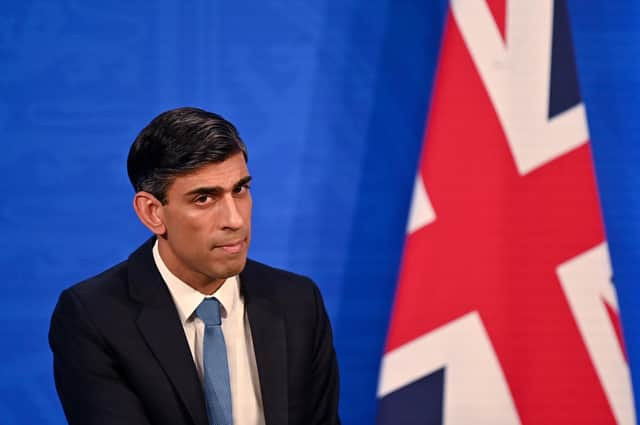Cost of living crisis: Contrasting Tory and SNP responses to workers' disputes shows why Scottish independence is necessary – Tommy Sheppard


What a difference a year makes. Covid is still with us but the restrictions have gone. On top of that, we have a whole bunch of new problems threatening to tear families and communities apart.
Prices in the supermarket seem to go up every week. Staying warm needs a small fortune. The cost of living is spiralling out of control. And the economic crisis is turbocharged by the incompetence of a Tory government playing the political equivalent of musical chairs.
Advertisement
Hide AdAdvertisement
Hide AdOrdinary workers are on the frontline. Many of those who worked so hard to get us through the pandemic, especially in the public sector, have seen their pay cut in real terms by the double whammy of austerity and inflation. In these circumstances, industrial action was almost inevitable. Trade unions were formed to defend ordinary working people from the ravages of the capitalist economy. They were never going to be more relevant than during a cost-of-living crisis.
Sadly, whether it’s nurses in England and Wales, or RMT strikes across Network Rail, the UK Government has used these disputes as a political football to attack workers who are only trying to get a better deal for themselves during a Tory-made cost-of-living crisis. They seem determined to out-Thatcher Thatcher, their actions designed to provoke, goad and undermine unions, while doing nothing to resolve matters.
In Scotland, where many in the public sector already earn more than their counterparts elsewhere in the UK, the Scottish Government has engaged positively with trades unions. As a result, they have reached agreement in some pay disputes already, and are continuing to negotiate others.
The response to the strikes is very much a tale of two governments. Don’t just take my word for it. Roz Foyer, general-secretary of the Scottish Trade Union Congress, says that while the STUC has robust discussions with the Scottish Government, they listen and work with them, unlike the government in Westminster which continues to introduce strike-breaking legislation.
Advertisement
Hide AdAdvertisement
Hide AdAs we head into 2023, it’s incumbent on all of us to make sure that our vital public sector workers know how much they’re valued. And this needs to be reflected in their pay and working conditions.
However, there is an uncomfortable reality we need to face. The Scottish Parliament has little flexibility over its budget. It has no control over the movement of capital or labour. It cannot continue to mitigate Tory policies forever. And it cannot pay our workforce what it would like to.
To do all that, the Scottish Government would need to have the powers of a normal independent country. Why shouldn’t it? That is now the big question that those who support the Union need to answer.
It is clear people want change. But it’s not enough just to want it. We need the means to make it happen. And that means we need to revisit the debate on Scotland having the political capacity to achieve what the people who live here want. Never have the arguments about our constitutional future and the type of country we aspire to be been so intertwined.
Tommy Sheppard is SNP MP for Edinburgh East
Comment Guidelines
National World encourages reader discussion on our stories. User feedback, insights and back-and-forth exchanges add a rich layer of context to reporting. Please review our Community Guidelines before commenting.